Zero Waste Reverse Osmosis (RO) system and tankless water heater...
Brent Christensen
7 years ago
Featured Answer
Sort by:Oldest
Comments (9)
hdbarrera
7 years agohdbarrera
7 years agoRelated Discussions
Thoughts/Comments on RO (Reverse Osmosis) water systems
Comments (28)As someone well steeped in a medical and science background, I can't really recommend an ionized water system over RO. No offense. Of course all unstudied things remain a mystery, but sometimes there are reasons we don't study things, because they don't make a lot of sense. Water is an extraordinarily weak buffer. You can sway its pH by electrolysis, but upon contact with any small amount of acid or base, it will quickly lose whatever pH it has. Read, stomach acid vs ionized water... stomach acid wins. If your goal is better tasting water, then carbon may be fine. If you want to remove tasteless chemicals and toxins, maybe RO is for you. The claim that there are 80,000 chemicals and toxins in the water supply at one time or another is sort of like claiming that every once in a while somebody gets hit by a bus, or struck by lighting. Yes, they are very real things, like chemicals in water, that may cause harm. But living your life in fear of such things can make people do extreme things, and waste a lot of money. You are not going to stay in your house, and avoid all roads to avoid lighting and buses, nor should every house install an RO system "to be safe." If your city has a bad track record for maintaining its water, you live near a clearly unregulated pesticide production facility, or you live on a farm with a well that has fluctuating water quality, it may be that an RO system is for you for "safety reasons." I still maintain an RO system is for us water snobs that not only want better tasting water, but clear ice, clear tea, and better water for our plants and high maintenance fish.......See Morereverse osmosis filter and instant hot
Comments (11)astridh -- my husband is better suited to answering your question but from what I remember him telling me: RO water is not just corrosive to the tank / pipes / tube (I think he said "tank" but I'm including it all in case I've forgotten) in an insta-hot, it is dangerous to the drinker. (it's dangerous because what the RO water corrodes is carried through the water supply to your cup of tea) He really wanted RO water and I really wanted just one faucet. So, we're going with just one faucet that does insta-hot AND filtered water. We've decided to live with it a while and see if the filtered water is good enough. If it is, great. If it's not, then I guess we'll either have to reassess (and get another faucet) or be prepared to frequently replace the insta-hot tank. I wish I had more details for you -- when I talk with him later I'll ask to see what pertinent info I left out. I found a panoply of great-looking faucets -- Brasstech and Little Gourmet (Mountain Plumbing) both have a slew of styles and finishes. (We purchased a Little Gourmet faucet and insta-hot tank -- I think it's a Culligan filtered water system?)...See MoreWhole house Reverse Osmosis system
Comments (21)I’m not a pro by training but I spent a solid 4 months (every single day) researching, reading, talking to chemical engineers at the local university, plumbers, etc. I exhausted myself day and night. I slept with my phone waiting for replies from a water chemist engineer from Germany. Stress. Bought a house with a well. Had water tested at lab and I had just about every problem imagined. Forget the local water treatment salesmen, unless you just want to make a donation. Waste of time and inefficient. I wasted a lot of time with those companies before I realized they didn’t know a damn thing. First test water for EVERYTHING! Yes, you have to go to a lab and probably spend $250.00 or more. Hardness PH bacteria levels iron sulfur and Sulphates TDS, alkalinity, manganese, everything! Get results and go from there. I had high iron, hardness, iron bacteria, dangerously high sulphates, rotten egg smell, all with a low Flow rate well. This matters! After handling all of my issues I was stuck with sulphates which is hard to deal with. R/O is the only way. This means I was going to be limited to having drinkable water in one location in my brand new house...the kitchen sink. I couldn’t even use the water dispenser or ice machine from my fridge because there was no practical way to connect an r/o system. I wanted a full house r/o where my kids could get water from their bathroom sink...but I have copper pipes so I didn’t think it was an option. ****IT IS AN OPTION no don’t have to re-pipe. BUT YOU DO HAVE TO TREAT OTHER ISSUES FIRST. Hard water doesn’t do well going into R/O system. Simply put, you r/o for the entire house and after R/O system you install another system which is a re-mineralizing the water to neutralize the PH and make it taste REALLY GOOD! The neutralized water (ph around 7-8) will not corrode anything. Water tastes just like the ph water from “smart water” You will spend some money. There will be an adjustment period while you fine tune everything. It’s worth it at the end. Licensed plumber for install. Water salesmen can not do this. Good luck. Bad water sucks, I almost put our house back on the market because nobody could figure it out. Eventually, some very kind and intelligent people helped me. They weren’t selling anything or getting anything in return. They just simply took the time to help someone in a bad situation. I am grateful and found this post and wanted to share. There is a way to fix water, no matter how bad....See MoreNeed Recommendation for Reverse Osmosis for Kitchen Sink
Comments (12)@alesesne, Living on well water is more complicated than living on a water system. It requires some education and some maintenance to make the well water nice AND safe. Annual testing for nitrates and bacteria is highly recommended. Comprehensive water test for well water from time to time is smart to do also. Well water conditions can change and it does. There's a lot more to ROs than buying one at Home depot and installing it under the sink. An important consideration is the quality of water being fed to the RO. RO membranes don't last as long if fed hard water. If there's iron in the water it can foul the filters. Bacteria can colonize in carbon filters in an RO. ROs can be designed and configured to deal with specific problems, especially with well water, by people who know and understand them but not by corporations that contract for RO manufacture on the other side of the world and simply import, warehouse, and ship boxes. @sushipup1, In the 12 years between filter changes ever checked the rejection rate of your RO? That would be how one would know when it is time to change the filters. Ever sanitize your RO?...See MoreBrent Christensen
7 years agolast modified: 7 years agoUser
7 years agoBrent Christensen
7 years agocatfishsew
5 years agoBrent Christensen
5 years agoHU-317761524
4 years ago
Related Stories

GREAT HOME PROJECTSHow to Switch to a Tankless Water Heater
New project for a new year: Swap your conventional heater for an energy-saving model — and don’t be fooled by misinformation
Full Story
HEALTHY HOMEHow to Choose a Home Water Filtering System
Learn which water purification method is best for your house, from pitchers to whole-house setups
Full Story
EARTH DAYGrow a Beautiful Garden With Ecofriendly Greywater
Reducing home water waste means lower bills and a healthier planet. Here's how to set up a greywater home irrigation system that can help
Full Story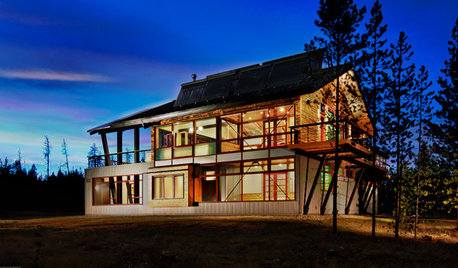
GREEN BUILDINGZero Net Energy: A Hardworking-House Term to Know
Homes that consume only as much energy as they produce by renewable means are a goal for builders. Learn what ZNE means for you
Full Story
SAVING WATER11 Ways to Save Water at Home
Whether you live in a drought-stricken area or just want to help preserve a precious resource, here are things you can do to use less water
Full Story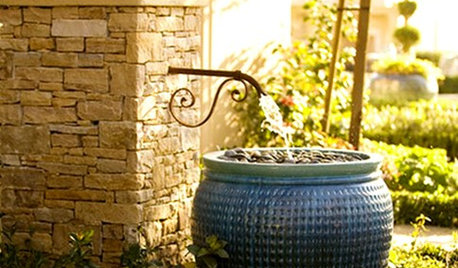
GREEN BUILDINGJust Add Water: Rain Barrel Magic
Take your rainwater storage from practical to beautiful with a new breed of design-friendly rain barrels
Full Story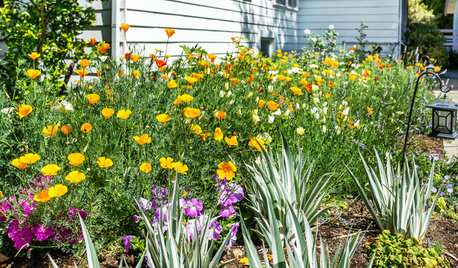
LANDSCAPE DESIGN10 Ideas for a Creative, Water-Conscious Yard
Check out these tips for a great-looking outdoor area that needs less water
Full Story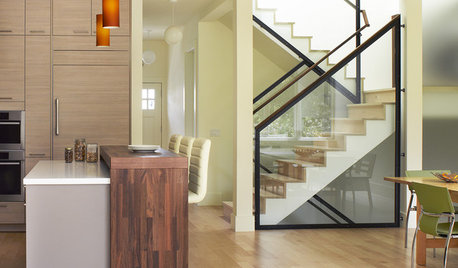
FLOORSIs Radiant Heating or Cooling Right for You?
Questions to ask before you go for one of these temperature systems in your floors or walls (yes, walls)
Full Story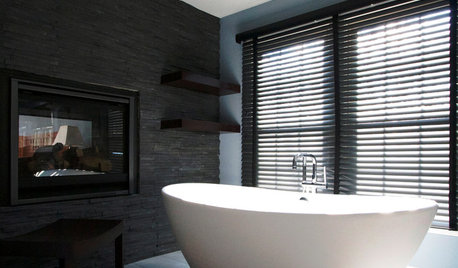
BATHROOM DESIGNDreaming of a Spa Tub at Home? Read This Pro Advice First
Before you float away on visions of jets and bubbles and the steamiest water around, consider these very real spa tub issues
Full Story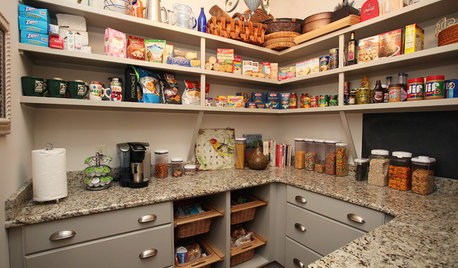
LIFEHow to Prepare for and Live With a Power Outage
When electricity loss puts food, water and heat in jeopardy, don't be in the dark about how to stay as safe and comfortable as possible
Full Story


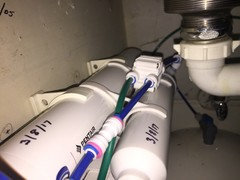
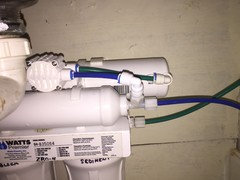
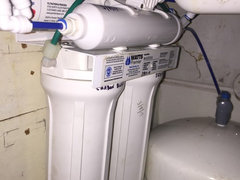
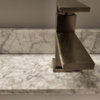
User